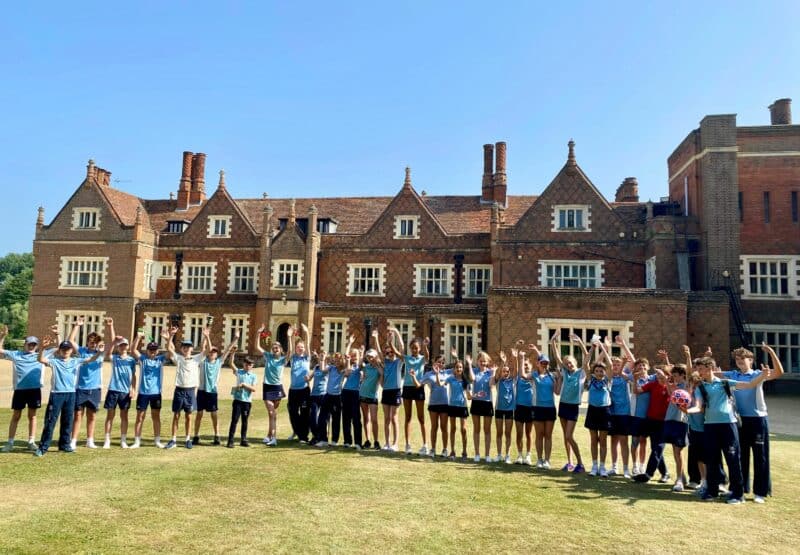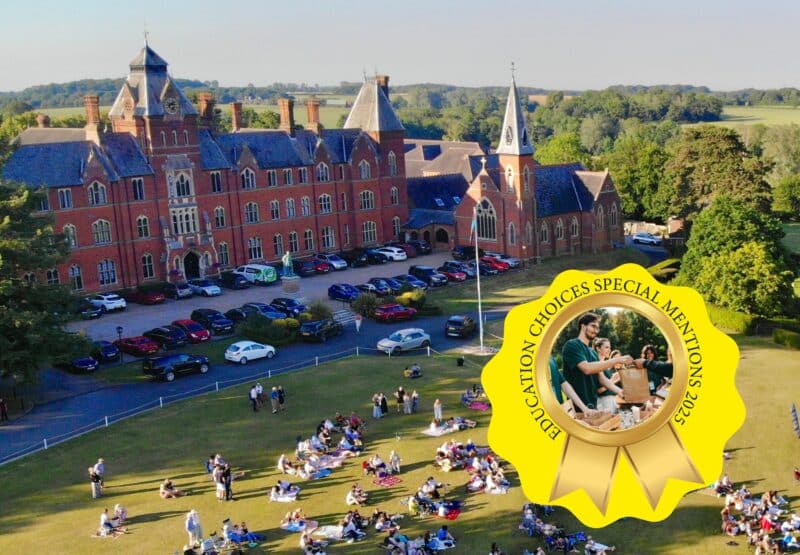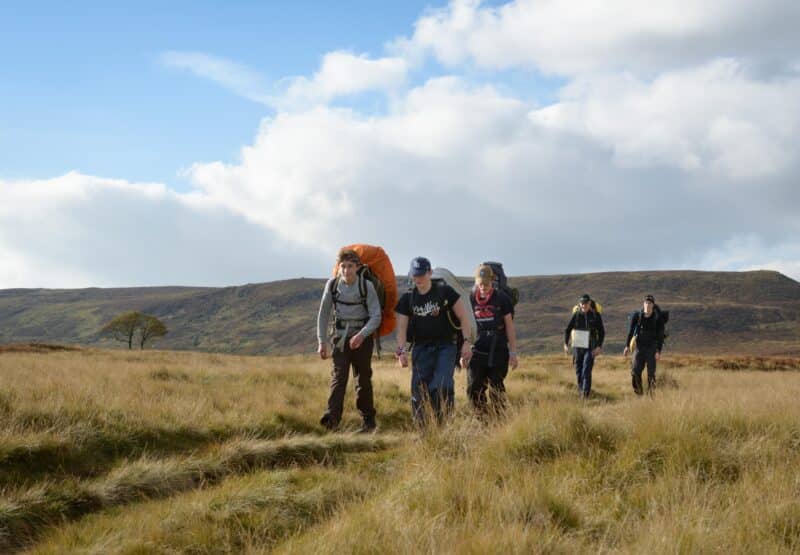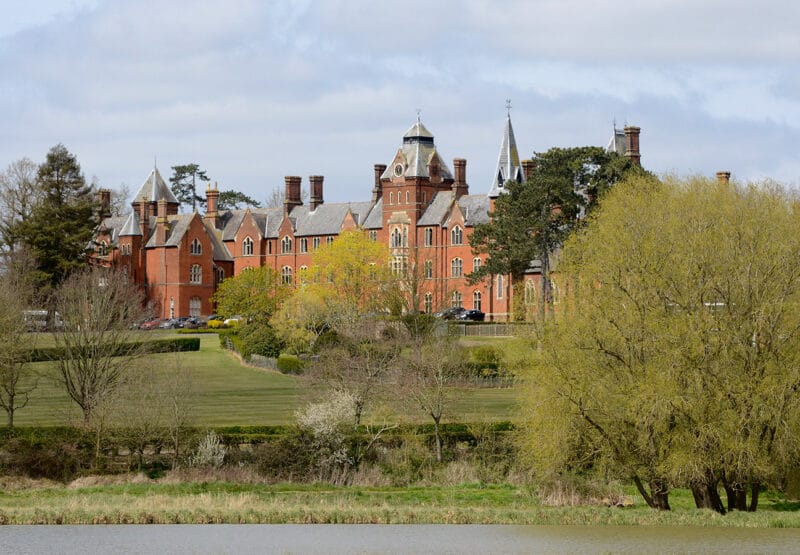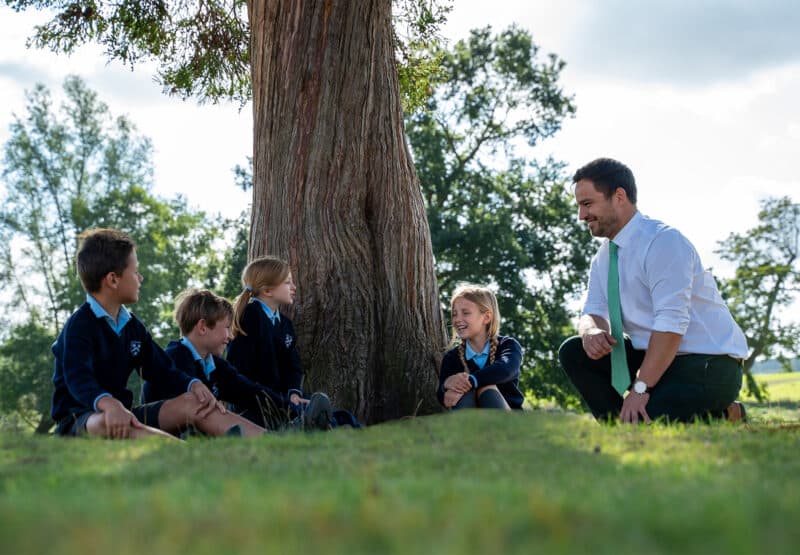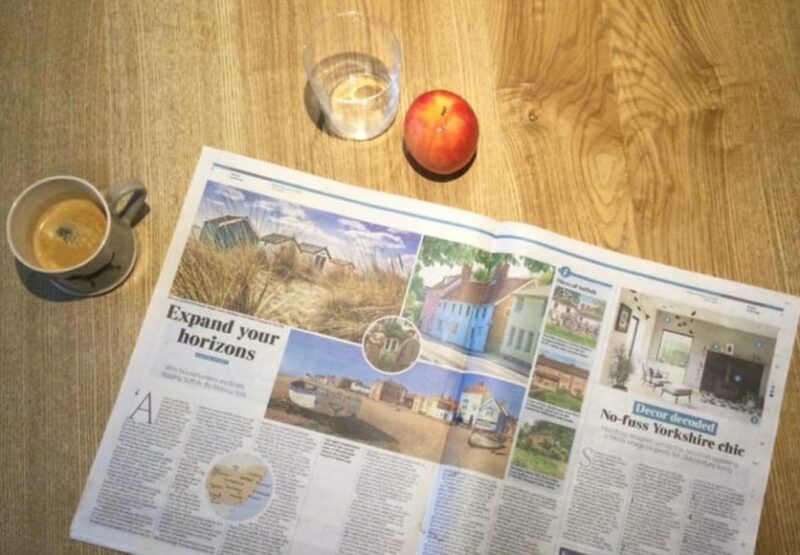In his final year as Headmaster at Framlingham College, Paul Taylor addressed the audience at his last College Remembrance Service.
Mr Taylor’s address in full:
I was delighted when the Chaplain invited me, in my last year as Headmaster, to give this address exactly 100 years after the end of a war where the scale of loss was so extensive and so profound that it prompted the need for a collective act of remembrance. I have always felt that schools are particularly poignant places for Remembrance, as we meet to remember those who walked these corridors as boys or teachers and whose presence is represented in Chapel this morning by the silhouettes among us.
Schools are living communities: breathing, ever-changing wonderful beings full of promise and challenge and hope and suffering and love. And when we dare to love we also leave ourselves vulnerable to the pain of profound loss. Each time of Remembrance, I reflect again on how terrible wartime must have been for the schools that were losing so many they had worked with, played with, argued with, and laughed with.
957 OFs served in the First World War. There was hardly a regiment or a unit in the Army where some Framlinghamian was not to be found; hardly a battlefield or a station in any theatre of operations – land, air or sea – that did not see some son of the School at the post of duty. One, a trooper, dining one night in mufti in a Cairo hotel – a rash thing to do in time of war – found at the next table the Inspector-General of Communications, who asked him for the latest news from their old school. A copy of The Framlinghamian was the first thing found in the locker of a trading ship searched at sea by a midshipman who had himself not long left the School.
There were Framlingham meetings, sometimes actually in the front line in France and Flanders, where men who had not seen one another since leaving School met again in the very eye of death and to the sound of the guns. One OF officer, himself afterwards killed, picked up at Givenchy a pair of field-glasses, recognised the initials “G. L. J. C.” as those of a schoolfellow in years gone by, and sent them home to his dead friend’s grieving family.
One Old Framlinghamian shot an enemy marksman who had just killed a Framlingham master; and another heard the School song being sung in a trench in France, and while on his way to greet the singer was buried by a shell-burst, never learning who that comrade was.
Many are the stories of grieving Headmasters who read out the weekly bulletins of their fallen alumni. George Corner was Headmaster of Wellington School, Somerset for 38 years. History shows how deeply he loved his school and what he called his ‘dear old boys’. In the period after the war, George received a typed form from the War Graves Commission identifying the names of each of the fallen from his school. Where the War Graves Commission had typed the rank and initials of each soldier, George Corner has crossed this out with his black fountain pen and in his own hand – and without the need for any reference to any school records – replaced it with their Christian names, returning to them their fuller identity; to the boys he had known walking the corridors and playing on the fields of his school.
I remain forever grateful I have not had to lead a community in a time of war.
I’m an historian so I love stories that bring history to life. I recently read a fascinating interview with Laetitia Hardie. She is a very alert 101 year old and has a vivid recall, especially of her childhood (though apparently she is not so strong on what went on last week!). Her father was General Wyatt, a man who had fought throughout the First World War – gaining a DSO in 1916 – and who was, in 1920, charged with selecting the ‘Unknown Warrior’. This unidentified body, who could have come from any background and been of any rank, was chosen to represent all the soldiers, pilots and sailors who were lost in the war. He would be buried among Kings in Westminster Abbey with a reverence he could never have imagined in life.
Hundreds and thousands of men had been killed in the war. When the war ended, their bodies were exhumed and reburied in nearby cemeteries, but many of them could never be identified. These were the men that the Unknown Warrior needed to represent, providing a focus for the grieving of countless widows, parents, siblings and, who knows, Headmasters too.
The idea for the Unknown Warrior originally came from an Army Chaplain, Rev’d Railton, who saw a small cross at Armentieres in northern France, with a fresh grave marked with the words ‘An Unknown British Soldier’. Railton wrote: ‘How that grave caused me to think…. I thought and thought: what can I do to ease the pain of father, mother, brother, sister, sweetheart, wife and friend? Quietly and gradually there came out of the mist of thought this answer clear and strong: ‘Let this body – this symbol of him – be carried over the sea to his native land.’ He wrote thus to all and sundry, including Lloyd George, General Haig and King George V, and soon the idea gained momentum.
Just before midnight on 7th November 1920, four bodies were brought into the chapel at St Pol from each of the battle areas of the Western Front: the Aisne, the Somme, Arras and Ypres. They had been exhumed from the unmarked graves from soldiers who had died early in the war. This was done to ensure that decomposition would mean that the bodies were completely unrecognisable. All were covered in a Union Jack and, at the stroke of midnight, General Wyatt was allowed to enter to choose the warrior.
Laetitia Hardie said her father rarely spoke about his role in all this and she thinks she understands why. ‘My view is that he regarded it as a sacred trust that had been committed to him and that some things are just too sacred to ever be discussed’
This idea of such remembrance being a ‘sacred trust’ has been upheld by succeeding generations, particularly in schools such as ours. If you have never visited the website of our alumni society I urge you to do so, for there sits a wonderfully crafted record of every single OF who has made the ultimate sacrifice, including brief biographies and directions to where they are buried. Of the 153 who lost their lives in the First World War, all but 15 graves have been visited and photographed in the last 6 years (and when some of the remaining sites are in places such as Basra and Baghdad you will understand why this list is not yet complete!). You read of stories such as one of the masters, Charles Beechey, who was one of 8 brothers who fought on the Western Front. Only 3 returned home.
Such diligent research and determination to keep their stories alive are, of course, in themselves profound acts of remembrance. They give the current generation of Framlinghamians the opportunity to understand their provenance, and as long as such acts of respect and ‘sacred trust’ continue to be carried out we have an outside chance of the right lessons being learnt by this and future generations.
So I am proud of the way we remember. I’m proud of the fact that our choir were moved – deeply – when they sang at the Menin Gate in Ypres last year; I’m proud that our prep school at Brandeston Hall exists because it was bought for the College by the Society of Old Framlinghamians so that it could be a living memorial to fallen OFs; I’m proud of those 250 ribbons – individually named by our pupils – tied to the apple trees on the Front representing each fallen student and master. I’m proud of the silent reverence of our students at last Friday’s Service at the front of the school. Every such act is an act of respect for the fallen, and also an act of gratitude for the lives we lead today due to their sacrifice for us.
So, why do we remember? We remember because remembrance is not about the past; it is about the present and it is about the future. I never expected to incorporate a Paul Weller lyric in a Remembrance address, but his statement that ‘The past is knowledge; the present our mistake and the future we always leave too late’ is not far off the mark. We have a regular saying here when a pupil says they can’t do something in class – in our Growth Mindset culture we just get them to add the word ‘yet’. Somehow, the war that was supposed to end all wars did nothing of the sort. Or – perhaps – just has not done so……YET.
– Ends –



